
-
Products
-
 Precast Concrete Accessories
Precast Concrete Accessories
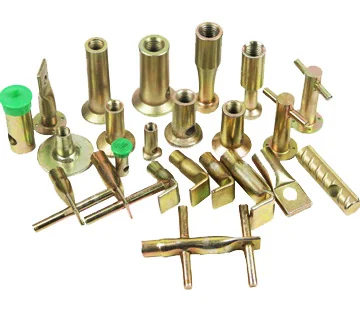
Precast Lifting Socket
The Precast Lifting Socket produced by HULK Metal will be inspected for raw materials, semi-finished products, finished products, and before shipment. Each batch of products is subject to various tests. We will test it with more than 3 times the load-bearing capacity. We use blind box sampling to ensure that sampling is more efficient. We have a complete supply chain and can provide you with better procurement services. You can also receive faster after placing your order.
+ Read More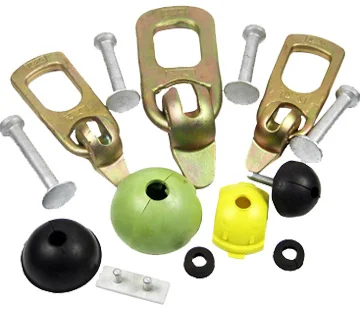
Precast Lifting Anchor
HULK Metal will go through 4 tests during the production of Precast Lifting Anchor. We will test it with more than 3 times the load-bearing capacity. We use blind box sampling to ensure that sampling is more efficient. We have a complete supply chain and can provide you with better procurement services. You can receive your order faster after placing your order. Our products have been exported to Europe, America, Australia and other regions.
+ Read More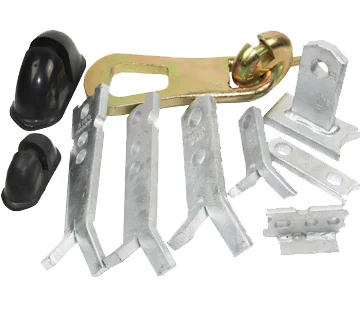
Precast Spread Anchor
The Precast Spread Anchor produced by HULK needs to be tested with more than 3 times the load-bearing force. The sampling method used blind box sampling. We have a complete supply chain and can provide you with better procurement services. You can receive your order faster after placing your order. Hundreds of businesses are already sourcing our products. We can customize the product for you according to the drawings you provide.
+ Read More
Precast Concrete Magnets
Precast concrete magnets are one of HULK Metal's main products. They are recognized by customers for their high quality and reasonable price. Precast concrete magnets use high-performance and durable NdFeB alloy magnets. Advanced technology effectively improves production efficiency and reduces costs while ensuring its quality. We provide quality assurance services. You can purchase them with confidence.
+ Read More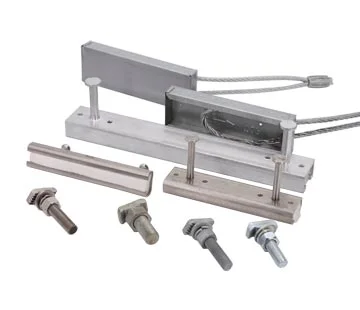
Halfen Channel & Wire Loop Box
HULK Metal is the top cast in channel and wire loop box manufacturer in China with over 16 years of experience. Our factory is more than 1000 ㎡, equipped with advanced production equipment. We can provide you with all ranges of halfen channels, cast in channels, wire loop boxes, and other precast concrete accessories in the construction industry according to your needs, and can provide you with a variety of surface treatments Serve. We can provide a full range of services such as freight consultation, quality inspection, and quality assurance to ensure you can enjoy an easier purchase experience in HULK Metal.
+ Read More
Concrete Bolts & Crews
Concrete Bolts & Screws are mainly used to fix parts in concrete. It has strong torsion resistance and drilling ability, and can be easily driven into concrete without drilling holes. Its materials are mainly high-performance alloy steel and stainless steel. The former needs to be galvanized to enhance rust resistance. HULK Metal is one of the main suppliers of Concrete Bolts & Screws in China. It has advanced cold forging equipment. It can efficiently complete high-quality orders at a lower price. Looking forward to your inquiry.
+ Read More
Lifting Hooks for Precast Concrete
HULK Metal offers a wide range of G43, G70, and G80 strength lifting hooks with a well-established supply chain. We have an advanced forging factory and integrated assembly line production. The quality of lifting hooks will be more guaranteed, and we can provide electro-galvanizing, hot-dip galvanizing, and powder coating—three surface treatments. We strictly implement ISO 9001 standard management to provide you with higher-quality products and services. You can contact us at any time to visit the factory to understand our production capacity and service capabilities, and then hand over the order to us after you are satisfied.
+ Read More -
 Guardrail & Handrail Systems
Guardrail & Handrail Systems
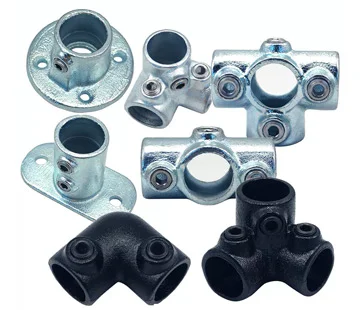
Structural Pipe Fitting
HULK Metal has an advanced automatic casting production line and has a full range of molds for pipe fittings, which can provide you with the production service of structural pipe fittings more quickly. The structural pipe fittings currently produced are mainly cast iron, and production solutions of other materials can be customized for you. We can provide you with hot-dip galvanizing, electro-galvanizing, spraying, and other surface treatment services. We have a quality inspection team and quality assurance services to ensure that the qualified rate of products reaches 100%. The institutional pipe fittings we produce have been widely used in dozens of application scenarios such as mountain road guardrails, household guardrails, and building guardrails.
+ Read More
Galvanized Pipe Handrail Fittings
HULK Metal has an ISO 9001 certified foundry, a close cooperation with galvanizing factories and raw material suppliers, and can provide you with high-quality galvanized pipe handrail fittings brand OEM or supply services. Our factory has advanced automatic mold production lines, automatic pouring lines, CNC processing centers. And fully automatic galvanizing lines, under strict management, can more efficiently complete higher quality orders. We provide quality assurance services, you can rest assured to give us your orders.
+ Read More -
 Metal OEM Parts
Metal OEM Parts
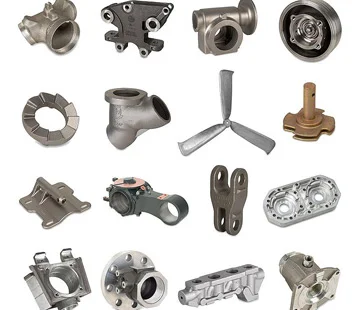
Casting Parts
HULK Metal has 16 years of experience in casting machining. We can provide you with production services for sand casting, investment casting, metal mold casting, lost foam casting, and other processes. We can machining accessories made of ductile iron, cast iron, malleable iron, forged steel, stainless steel, etc. The castings machined at HULK Metal can have higher precision and higher quality performance. Our products have been widely used in agricultural machinery parts, auto parts, and other industrial parts.
+ Read More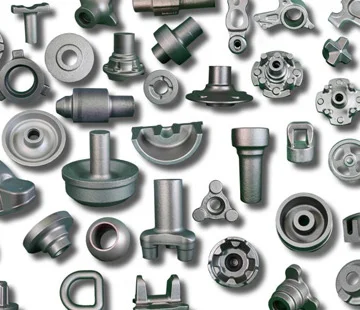
Forging Parts
HULK has 16 years of experience in the machining of forgings. We have mastered various forging processes such as hot forging, cold forging, and die forging, and can provide you with higher standard forging machining services. The forging parts produced by HULK have been applied to many industries such as construction, agricultural machinery machining, and automobile production. We have an experienced quality inspection team and advanced quality inspection equipment, which can provide you with higher quality forging parts with tighter tolerances.
+ Read More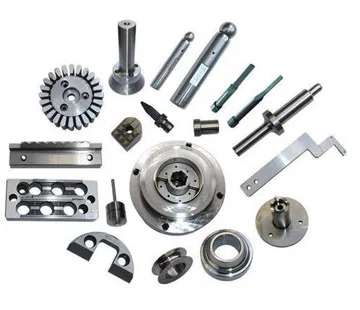
CNC Machining Parts
HULK Metal has 16 years of production experience in CNC machining. We have new production equipment and are proficient in turning, milling, planing, drilling, grinding, drilling, boring, and other finishing processes. Can provide you with higher precision CNC machining services. We also have more advanced quality inspection equipment and a quality inspection team to ensure that your order can reach a 100% pass rate. Our CNC products are widely used in many industries such as electronics, automobiles, and home appliances.
+ Read More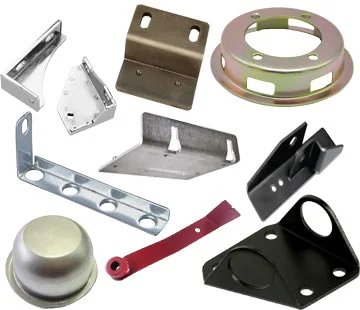
Metal Stamping Parts
HULK Metal has supplied metal stamping services for buyers since the second half of the 20th century and has established a complete service system through continuous development. As a relatively well-known manufacturer of metal stamping parts, HULK Metal has three 300-ton punching machines, five 200-ton punching machines, five 100-ton punching machines, and five 60-ton punching machines, which can complete most of the stamping parts manufacturing services. Now we have supplied services for over 20 industries such as machinery, automobile, bicycle, construction, and home appliances.
+ Read More -
 Network Server Rack Accessories
Network Server Rack Accessories

Network Server Racks
Our experienced technical team can control the cost of network server racks based on your drawings and requirements while ensuring quality, and use our perfect supply chain to develop a more satisfactory solution for you. The advanced sheet metal stamping factory can efficiently complete the cutting, bending, stamping, welding, assembly and other processes to deliver network server racks with higher requirements. We also provide quality assurance services.
+ Read More
Network Server Cabinets
3 to 42 U Network Server Cabinets are our main OEM products. We have produced more than 30 types, such as mobile, wall-mounted, detachable, fixed, etc. Our sheet metal stamping factory has advanced laser cutting machines, bending machines, punching machines, laser welding machines, argon arc welding machines, riveting machines, etc. You can give us your order after visiting our factory.
+ Read More
Network Server Tray
HULK Metal has been providing OEM services for global Network Server Trays buyers since 2020. We have now served more than 30 brands, and our high-quality products have won their unanimous praise. We have a complete supply chain and can develop a more suitable solution based on your drawings: more reasonable prices, more accurate delivery time, more thoughtful after-sales service, and higher quality are our commitment to you.
+ Read More
Network Server Brackets
HULK Metal has produced a variety of Network Server Brackets for fixing wall-mounted server chassis, fixing servers in chassis, and fixing cable managements. We have advanced production equipment and quality inspection equipment to ensure that each Network Server Bracket has higher quality. The perfect supply chain allows us to better control the cost of orders. You can benefit more from it.
+ Read More
Network Server Blank Panels
HULK Metal has produced a variety of Network server blank panels and knows what you need most. We have a complete supply chain to control the cost of orders. The advanced sheet metal stamping factory can complete all processes of production in one stop, and our own logistics team can complete the transportation inland China. We have a professional quality inspection team to ensure the quality of your goods. At the same time, we have Haitong quality assurance service, and any quality problems can be solved.
+ Read More
Network Server Cable Managements
HULK Metal will provide you with higher quality Network Server Cable Managements OEM service. We have a complete supply chain and experienced team to provide you with stronger support. Through us, you can get high-quality and low-cost network server cable managements faster. Contact us now to visit the factory and fully understand our production capabilities before placing an order with us.
+ Read More -
 Wire Rope Cable Puller Griper
Wire Rope Cable Puller Griper
-
 Aluminum Parts
Aluminum Parts
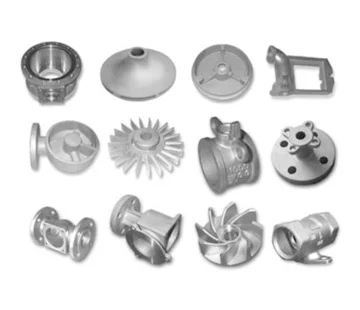
Aluminum Die Casting Parts
HULK Metal provides professional Aluminum Die Casting Parts production services. We have thousands of square meters of factories, The aluminum die-casting equipment can process thousands of tons of products and a one-stop fully automatic production line. The annual output value of Aluminum Die Casting Parts can reach tens of millions of dollars. We are fully capable of providing you with OEM production services. We have a quality inspection team and provide quality assurance services to ensure that your products can reach a 100% pass rate. We can also provide you with various surface treatments such as sandblasting, brushing, polishing, high-gloss cutting, anodizing, two-color anodizing, spraying, synthesizing, etc. We produce Aluminum Die Casting Parts that have been used in many industries such as heat sinks, electronics, home appliances, automobiles, and decoration.
+ Read More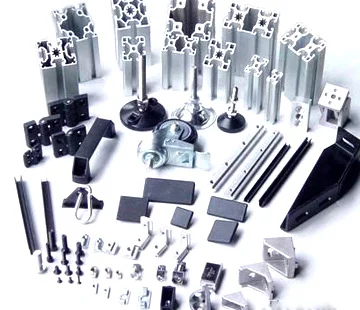
Aluminum Profile Machining
Professional aluminum profile machining services are provided by HULK Metal. We have thousands of tons of profile extrusion equipment and excellent aluminum profile production capacity. We can provide you with milling, cutting, drilling, tapping, punching, and other machining services. We can also provide you with a variety of surface treatments in sandblasting, brushing, polishing, high-gloss cutting, anodizing, two-color anodizing, spraying, compositing, etc. The aluminum profile products we process have been widely used in heat sinks, automobiles, decoration, and other industries.
+ Read More -
 Pump & Valve Parts
Pump & Valve Parts
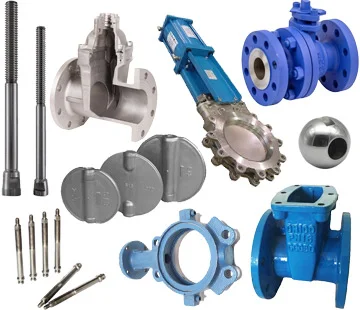
Valve Parts
HULK Metal will fully understand your requirements and plan a complete production solution according to the drawings. We are proficient in the production process of valve parts and the processing methods of various materials. Both the quality inspection team and the production team have rich experience to complete the production of the order faster and ensure the quality of the order. Our freight consulting team will plan more cost-effective freight routes based on your city. Our excellent service will allow you to enjoy an easier purchasing experience while purchasing higher standard valve parts.
+ Read More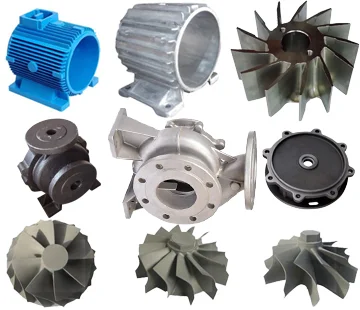
Pump Parts
You can purchase pump parts that are more suitable for you at HULK Metal. We have a professional technical team who are proficient in the production process of pump parts. We will complete the production of the order faster according to the drawings and production requirements you provide. We can also plan more cost-effective freight routes for you. Each batch of orders will be strictly inspected by the quality inspection team. You can not only buy higher standard products at HULK Metal but also have an easier and more relaxed purchasing experience.
+ Read More
-
- Services
- OEM
- Promise
- Blog









 Metal OEM Parts
Metal OEM Parts 



 Network Server Rack Accessories
Network Server Rack Accessories 





 Wire Rope Cable Puller Griper
Wire Rope Cable Puller Griper 











